PDF Notes for the Investigative Judgment
PDF Notes for Investigating the Judgment
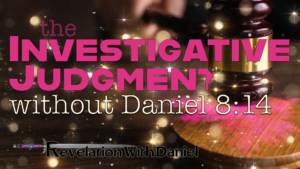
Genesis 4:1-15 – Cain slew his brother Abel. God did not judge Cain without first investigating the situation through an angel (SR 53.1). After questioning Cain prior to his sin, and then after the sin of murder, God asked these questions, “Why art thou wroth?” “Why is thy countenance fallen?” “If thou doest well, shalt thou not be accepted?” “Where is Abel thy brother?” “What hast thou done?” In these five questions asked by the angel, God made His entire creation to know, from one end of the universe to the other, all things that were necessary to be understood before pronouncing judgment upon His creature. He then dealt according to His mercy with Cain—he was left alive. Notice, God wondered whether or not His earthly child was obedient to His commands, and this was the premise upon which He judged the situation.
Genesis 6:3-12 – God, in His mercy, gave the inhabitants of the earth 120 years to repent. During that time He went down through angels to see if the wickedness of man was great enough to be destroyed (see Ms86-1886.5). Notice, “God saw that the wickedness of man was great in the earth” (Vs. 5). He went down and investigated for Himself before pronouncing judgment. “God looked upon the earth, and, behold, it was corrupt; for all flesh had corrupted his way upon the earth” (Vs. 12). After 120 years of questions and answers from both God and Noah, and the other preachers of righteousness, He finally fulfilled His judgments upon the inhabitants of the earth. His command was to get into the ark; most forsook the counsel, and were judged accordingly.
Genesis 11:1-9 – At Babel, “The Lord came down to see the city and the tower, which the children of men builded.” After God saw the situation through angels (SR 73.1), He gave a brief explanation of what He was about to do, and then confounded their language through angels. He investigated first, and then gave explanation, so that all of the inhabitants of the universe would see the reasoning behind His actions. What those people planned to do was contrary to God’s command; therefore, He judged them (See Gen. 9:1).
Genesis 18:20-26 – The Good Lord heard the cry of the righteous in Sodom. Their prayers came up before Him into His holy temple. Notice the fair words spoken by the Master, “I will go down now, and see whether they have done altogether according to the cry of it, which is come unto Me; and if not, I will know.” Praise the Lord, He is merciful, He is just! Notice His justice and love as He, along with two angels, conversed with man, when Abraham said to Him, “Wilt Thou also destroy the righteous with the wicked?” (Vs. 23) What was the answer of our God? “I will not destroy it for ten’s sake” (Vs. 32). He came down to know for Himself that which was spoken to Him in prayer, concerning the cities of the wicked! He wished to make His creation know, from one end of the universe to the other, all things that were necessary to be understood before pronouncing judgment upon His creatures. God’s commandments were being broken. This was why He pronounced judgment upon His creatures. (For the angels commissioned of God to go and see the city in person, before the judgment, see chapter 19.)
Exodus 2:23-25; 3:7-9 – God came down to see the affliction of His people in Egypt. He had heard the cry of His children; and as the Father of a captive son, He was about to do something to release them (Ex. 4:22-23 and 3SG 187.1). Before God pronounced His Divine judgments (Ex. 6:6), He went down personally and viewed the severity of the situation. This was done, that all might know, that He was just and righteous for doing what He planned. This also will be expressed in the seven last plagues of Revelation 16:5. How can this be said? Because prior investigation will have been made, evidence will be found and displayed, and a due recompense will be their reward (Rev. 16:6-7).
Exodus 32:7-10 – God watched and listened to His children as they, “turned aside quickly… made them a molten calf… worshiped it… sacrificed… and said…” etc. He then said, “I have seen this people.” Again, God came down to see and hear what His children had done, so that He would pronounce His judgments intelligently. They had broken God’s law, and on that premise, He would judge them.
Time would fail us to go through the entire Bible to show all of the incidents that God came down to hear and see that which humans have said and done. The most important things to remember are these: God came down in the form of the Son of Man to hear and see what humans say and do. We killed the Son of man by our sin; we would no more receive Him today than the Jews did two thousand years ago. We are wicked creatures that would crucify again the Christ if we were not subdued by the magnificent grace of our God. Let’s reflect on our own lives. What do we say and do on a regular basis? If God were to come down to the area where we live, at any given time, what would He find us saying and doing?
Daniel 7:8-14, 21-22, 24-27 – This section of Scripture clearly describes a succession of events: The little horn’s activity, the judgment, and the kingdom. The kingdom is not given to the Son of man until after the judgment. This occurs, in the same order, three undeniable times in this chapter. God’s point through His prophet was that there will be the time of the horn (or antichrist power), and then there would be a judgment that precedes the coming of our King.
Matthew 22:11-13 – The King Himself came in to the marriage feast, He saw those that were there, measured them by the standard of apparel by which He had set up (representing the robe of Christ’s righteousness), and then pronounced judgment on the one that had not followed His will. God, pictured in this parable as the King, pronounced judgment after He investigated the situation.
Revelation 22:11-12 – “Behold, I come quickly; and My reward is with Me, to give every man according as His work shall be.” He previously investigates, just as He did in His past, and then comes “with” His reward, not to create, or make it up—He comes with His reward.
Psalm 102:19-21 – “For He hath looked down from the height of His sanctuary; from heaven did the LORD behold the earth; to hear the groaning of the prisoner, to loose those that are appointed to death; to declare the name of the LORD in Zion, and His praise in Jerusalem…” (See also Ezekiel 33:11).
The only question asked in the judgment will be, “Have they been obedient to My commandments?” (GW 315.1) Obedience can only be accomplished by having Christ in us, the Hope of Glory. Does Christ Jesus have full reign in your heart?
Investigating the Judgment
Ruth 2:12 The LORD recompense thy work, and a full reward be given thee of the LORD God of Israel, under whose wings thou art come to trust.
Ecclesiastes 3:17 I said in mine heart, God shall judge the righteous and the wicked: for there is a time there for every purpose and for every work.
Ecclesiastes 12:13-14 Let us hear the conclusion of the whole matter: Fear God, and keep his commandments: for this is the whole duty of man. 14 For God shall bring every work into judgment, with every secret thing, whether it be good, or whether it be evil.
Jeremiah 25:14 For many nations and great kings shall serve themselves of them also: and I will recompense them according to their deeds, and according to the works of their own hands.
Jeremiah 50:29 Call together the archers against Babylon: all ye that bend the bow, camp against it round about; let none thereof escape: recompense her according to her work; according to all that she hath done, do unto her: for she hath been proud against the LORD, against the Holy One of Israel.
Ezekiel 7:3-4 Now is the end come upon thee, and I will send mine anger upon thee, and will judge thee according to thy ways, and will recompense upon thee all thine abominations. 4 And mine eye shall not spare thee, neither will I have pity: but I will recompense thy ways upon thee, and thine abominations shall be in the midst of thee: and ye shall know that I am the LORD.
Ezekiel 7:8-9 Now will I shortly pour out my fury upon thee, and accomplish mine anger upon thee: and I will judge thee according to thy ways, and will recompense thee for all thine abominations. 9 And mine eye shall not spare, neither will I have pity: I will recompense thee according to thy ways and thine abominations that are in the midst of thee; and ye shall know that I am the LORD that smiteth.
Ezekiel 9:10 And as for me also, mine eye shall not spare, neither will I have pity, but I will recompense their way upon their head.
Ezekiel 11:21 But as for them whose heart walketh after the heart of their detestable things and their abominations, I will recompense their way upon their own heads, saith the Lord GOD.
Ezekiel 16:43 Because thou hast not remembered the days of thy youth, but hast fretted me in all these things; behold, therefore I also will recompense thy way upon thine head, saith the Lord GOD: and thou shalt not commit this lewdness above all thine abominations.
Ezekiel 17:19 Therefore thus saith the Lord GOD; As I live, surely mine oath that he hath despised, and my covenant that he hath broken, even it will I recompense upon his own head.
Ezekiel 23:49 And they shall recompense your lewdness upon you, and ye shall bear the sins of your idols: and ye shall know that I am the Lord GOD.
Hosea 12:2 The LORD hath also a controversy with Judah, and will punish Jacob according to his ways; according to his doings will he recompense him.
Joel 3:4 Yea, and what have ye to do with me, O Tyre, and Zidon, and all the coasts of Palestine? will ye render me a recompence? and if ye recompense me, swiftly and speedily will I return your recompence upon your own head;
Matthew 12:36-37 But I say unto you, That every idle word that men shall speak, they shall give account thereof in the day of judgment. 37 For by thy words thou shalt be justified, and by thy words thou shalt be condemned.
Matthew 16:27 For the Son of man shall come in the glory of his Father with his angels; and then he shall reward every man according to his works.
Luke 14:13-14 But when thou makest a feast, call the poor, the maimed, the lame, the blind: 14 And thou shalt be blessed; for they cannot recompense thee: for thou shalt be recompensed at the resurrection of the just.
Romans 12:17 Recompense to no man evil for evil. Provide things honest in the sight of all men.
Romans 14:10-12 But why dost thou judge thy brother? or why dost thou set at nought thy brother? for we shall all stand before the judgment seat of Christ. 11 For it is written, As I live, saith the Lord, every knee shall bow to me, and every tongue shall confess to God. 12 So then every one of us shall give account of himself to God.
2 Corinthians 5:10 For we must all appear before the judgment seat of Christ; that every one may receive the things done in his body, according to that he hath done, whether it be good or bad.
2 Corinthians 11:14 And no marvel; for Satan himself is transformed into an angel of light. 15 Therefore it is no great thing if his ministers also be transformed as the ministers of righteousness; whose end shall be according to their works.
2 Thessalonians 1:6 Seeing it is a righteous thing with God to recompense tribulation to them that trouble you;
2 Timothy 4:14 Alexander the coppersmith did me much evil: the Lord reward him according to his works:
Hebrews 10:30 For we know him that hath said, Vengeance belongeth unto me, I will recompense, saith the Lord. And again, The Lord shall judge his people.
1 Peter 1:17 And if ye call on the Father, who without respect of persons judgeth according to every man’s work, pass the time of your sojourning here in fear:
Revelation 2:23 And I will kill her children with death; and all the churches shall know that I am he which searcheth the reins and hearts: and I will give unto every one of you according to your works.
Revelation 18:6 Reward her even as she rewarded you, and double unto her double according to her works: in the cup which she hath filled fill to her double.
Revelation 20:12-13 And I saw the dead, small and great, stand before God; and the books were opened: and another book was opened, which is the book of life: and the dead were judged out of those things which were written in the books, according to their works. 13 And the sea gave up the dead which were in it; and death and hell delivered up the dead which were in them: and they were judged every man according to their works.
Revelation 22:12 And, behold, I come quickly; and my reward is with me, to give every man according as his work shall be.

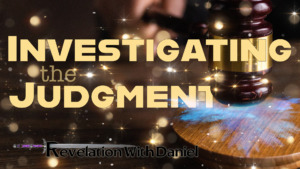
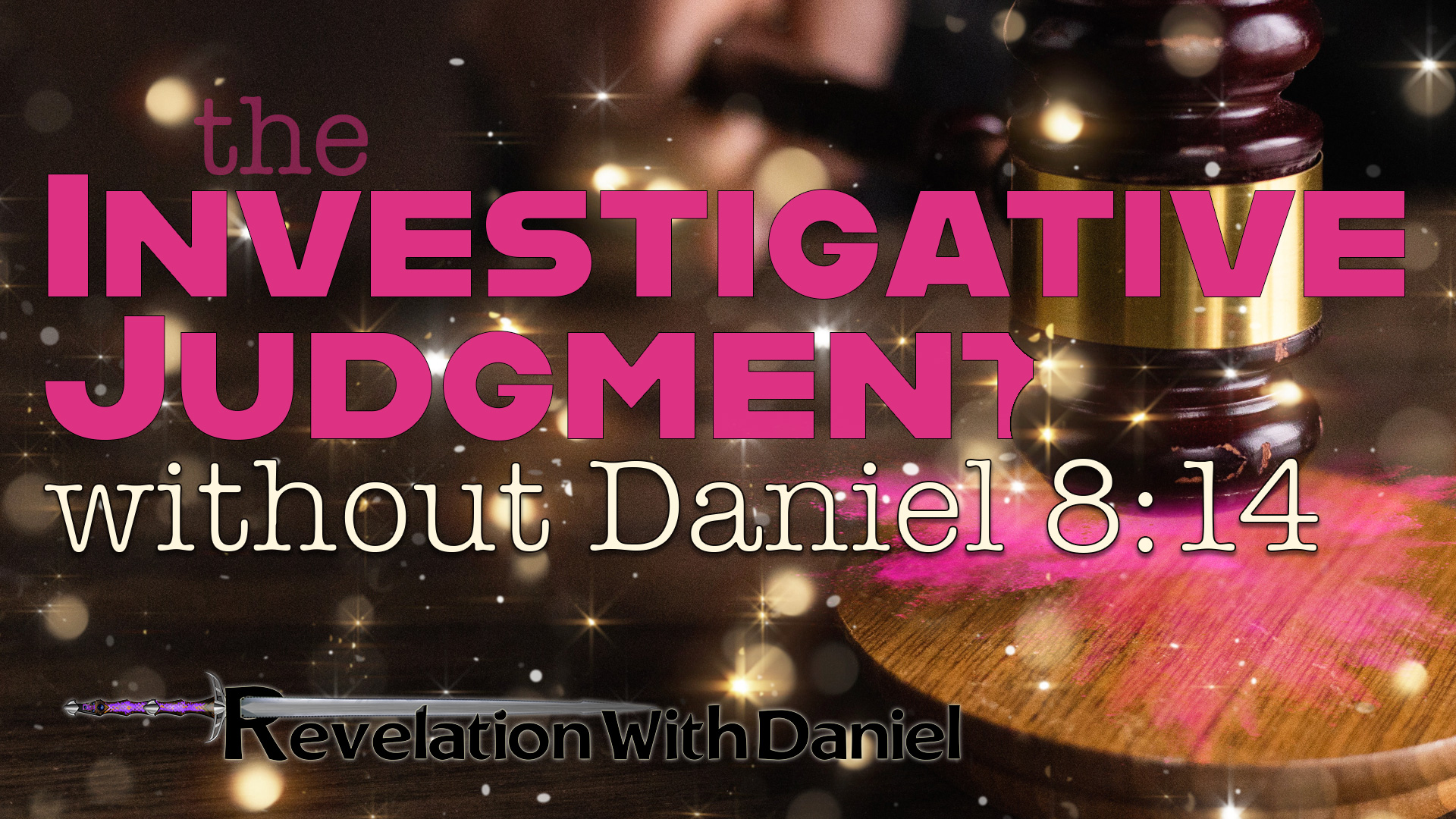
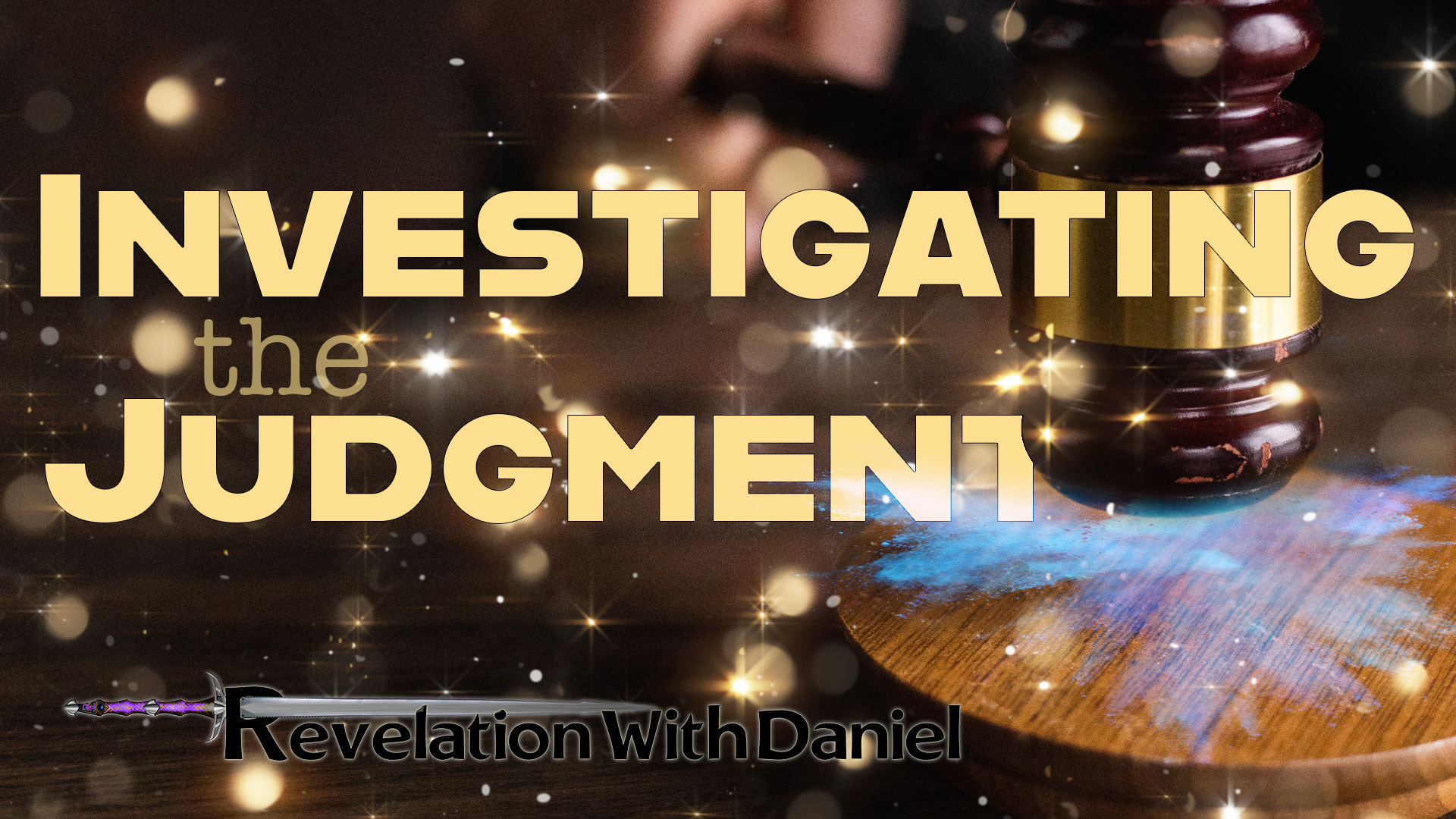

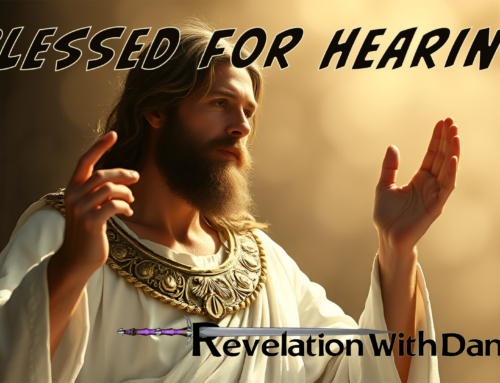



Leave A Comment